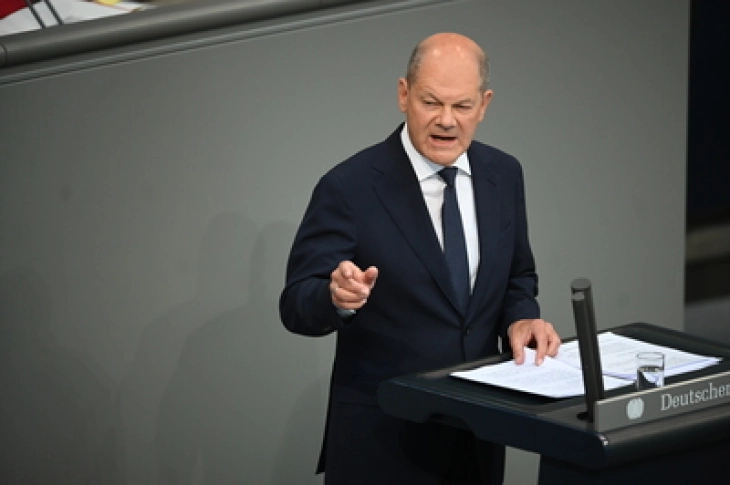Germany's Scholz supports deporting criminals from Syria, Afghanistan
- German Chancellor Olaf Scholz wants to allow the deportation of serious criminals to Afghanistan and Syria again, he told the Bundestag on Thursday.
- Post By Nevenka Nikolik
- 11:51, 6 June, 2024

Berlin, 6 June 2024 (dpa/MIA) - German Chancellor Olaf Scholz wants to allow the deportation of serious criminals to Afghanistan and Syria again, he told the Bundestag on Thursday.
"Such criminals should be deported - even if they come from Syria and Afghanistan," he said. "Serious criminals and terrorist threats have no place here."
The chancellor did not explain exactly how he intends to make this possible, but he said the Interior Ministry was working on the practical implementation and was already in talks with Afghanistan's neighbouring countries.
His comments come after a recent stabbing in the south-western city of Mannheim. At a rally organized by the anti-Islam movement Pax Europa, an Afghan injured several people, including a police officer who later died.
The attack triggered a debate about easing the current ban on deportations to Afghanistan.
Scholz also said that the glorification and celebration of terrorist offences would no longer be tolerated.
"That is why we will tighten our deportation regulations so that a serious reason for deportation arises from the creation of terrorist offences," Scholz said.
"Anyone who glorifies terrorism is against all our values and should be deported."
Germany has not sent anyone back to Afghanistan since the radical Islamist Taliban took power in Kabul in August 2021. Even before that, due to the difficult security situation at the time, it had been agreed that only men - and above all criminals and potential terrorists - would be forcibly returned to Kabul.
The many people from Syria and Afghanistan who have come to Germany as asylum seekers over the past 10 years also include some who have committed serious criminal offences in Germany or who the police believe could commit a terrorist attack.
Although the legal hurdles for the deportation of those who pose a potential danger are lower than for others who are required to leave the country, there are legal and practical difficulties.
Photo: dpa







